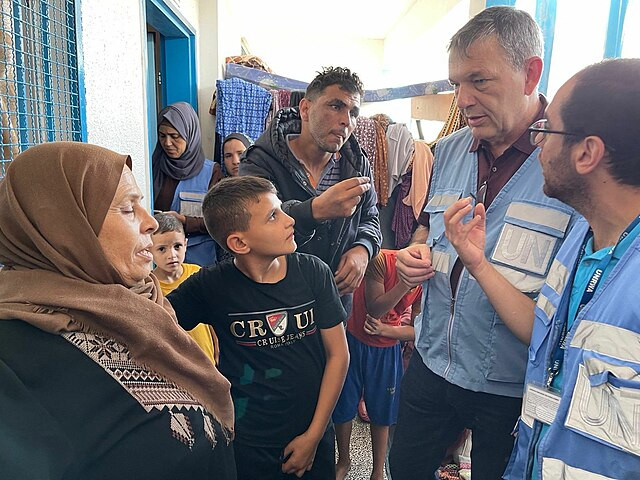In an unprecedented move that underscores the complexities of international humanitarian aid amidst geopolitical strife, several Western nations, including the UK, Australia, Italy, and Canada, have announced a temporary suspension of their funding to the United Nations Relief and Works Agency for Palestine Refugees in the Near East (UNRWA).
This decision, which has sent ripples through diplomatic circles, stems from serious allegations linking some UNRWA staff members to the violent attacks carried out by Hamas on October 7, targeting Israeli civilians.
The attacks, which resulted in significant casualties and a subsequent escalation in the Israel-Gaza conflict, have prompted a reevaluation of the role and oversight of international aid organizations operating in volatile regions. "The UK is appalled by allegations that UNRWA staff were involved in the 7 October attack against Israel, a heinous act of terrorism that the UK Government has repeatedly condemned," stated the UK Foreign Office, reflecting the sentiment of the international community.
UN Secretary-General Antonio Guterres expressed his dismay at the developments, emphasizing the gravity of the situation and the need for a thorough investigation. In light of the allegations, the US State Department took a decisive stance, stating it was "extremely troubled" by the potential involvement of UN staff in acts of terror, leading to a suspension of additional funding to UNRWA.
The European Union, represented by foreign policy chief Josep Borrell, has also voiced its concern, indicating that the 27-member bloc would "assess further steps and draw lessons based on the result of the full and comprehensive investigation." This collective pause in funding signifies a critical moment for UNRWA, an agency that has long been instrumental in providing education, healthcare, and humanitarian aid to Palestinian refugees across the Middle East.
Amid the funding freeze, Palestinian officials and Hamas have vehemently criticized the decision, arguing that it jeopardizes essential humanitarian assistance to the Palestinian populace. The Palestinian Authority's Hussein Al-Sheikh urged Western donors to "immediately reverse their decision," highlighting the potential ramifications on the ground.
Israel, on the other hand, has lauded the international response, with Foreign Minister Israel Katz expressing a desire to halt UNRWA's operations in Gaza post-conflict. The allegations have also sparked a broader debate on the relationship between humanitarian agencies and the entities they operate within, with some Israeli officials, including Mark Regev, adviser to the Israeli prime minister, calling for a deeper investigation into the ties between UNRWA and Hamas.
As the international community grapples with these developments, the future of UNRWA and the framework for international aid in conflict zones hangs in the balance. The ongoing investigations by UNRWA and the independent review pledged by UN chief Guterres will be pivotal in determining the veracity of the allegations and shaping the response of the international community.
This critical juncture highlights the delicate balance between providing humanitarian aid and ensuring that such assistance does not inadvertently fuel the very conflicts it seeks to alleviate. The outcome of this situation may well redefine the parameters of international humanitarian efforts and their governance in the years to come.




